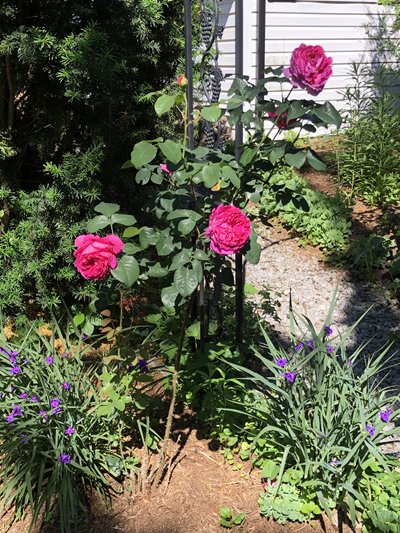In Spiked, Lauren Smith wonders if your garden — yes, your garden — is a nest of racist appropriation:
Is your garden racist? As incredible as this may seem, it’s a question many gardeners are being forced to ask themselves. The innocent act of planting a few flowers can now get you branded with the r-word.
A piece in the June issue of the BBC’s Gardeners’ World magazine claims that the weeds of racism have sprung up in some unlikely places. Landscape designer Jackie Herald argues that choosing to plant non-native species in British gardens can constitute “horticultural appropriation”, because they were originally brought to the UK as a result of colonialism.
Herald writes: “Embedded within cross-cultural borrowing is horticultural appropriation, something that’s all too easy for our nation of gardeners to carry on regardless. In many cases, the abundant plant selections that we now take for granted did come via free-willing exchanges, but were sourced by plant hunters during years of colonialism and power-grabbing global trade.”
So, instead of picking out plants willy-nilly, Herald tries to choose plants that “connect to my client’s cultural heritage”. That means you had better check your 23&Me results before filling your flowerbeds, otherwise you could be horticulturally appropriating plants that don’t align with your racial heritage.
Uprooting racism from your garden might be more tricky than you’d think. Not least as some of the UK’s best-loved flowers are products of “colonialism”. Magnolias, for example, came from colonial Virginia and camellias from China.
Apparently, the most problematic perennial of all is wisteria, that inoffensive purple plant you often see hanging around the doors of posh houses. In 2022, Transport for London published a sightseeing guide called Art on the Underground, which claimed that wisteria has “colonial roots” (presumably no pun intended). This is because it was brought to England in the early 19th century from China. The guide also highlighted the supposedly racist nature of using words like “exotic”, “native” or “invasive” to describe plants. According to TfL, these can cultivate painful memories of “histories of conquest” and are best avoided.




